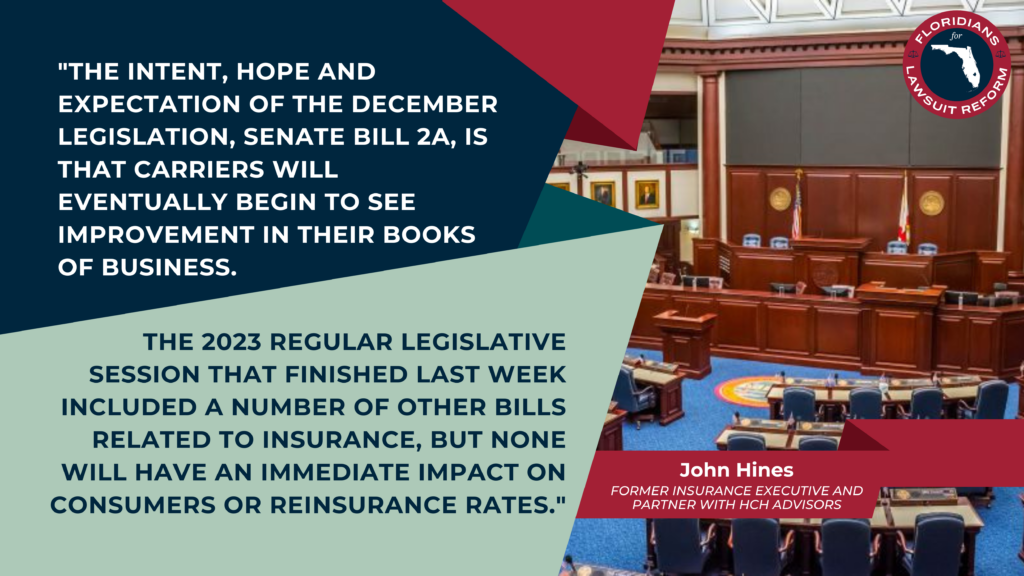
With the Florida legislative changes passed in December – prohibiting assignments of benefits and one-way attorney fees – there is now an opportunity to change the dynamic in Florida and create a more stable market.
Historically, the main tools to promote stability were rates and coverage, but they did not change the result in recent years. It is unrealistic to think that homeowner rates and reinsurance rates would decrease unless carriers begin posting better results.
The intent, hope and expectation of the December legislation, Senate Bill 2A, is that carriers will eventually begin to see improvement in their books of business. The 2023 regular legislative session that finished last week included a number of other bills related to insurance, but none will have an immediate impact on consumers or reinsurance rates.
So, it’s time for the stakeholders in Florida to rebuild the Florida market. And that will take a concerted effort.
Understanding the inter-relationships of stakeholders could provide a starting point. The key players are policyholders, carriers, reinsurers, investors, the Florida Office of Insurance Regulation, the Legislature and Citizens Property Insurance Corp.
Developing a framework requires us to set goals for what we want to achieve. Specific goals could include:
- Reducing rates for homeowners
- Reducing loss severity
- Reducing reinsurance costs
- Increasing reinsurance capacity
- Bringing financial stability to the market and strengthening the financial condition of all carriers
- Attracting new capital to the market
- Returning Citizens Property Insurance Corporation to the market of last resort.
How can we achieve these goals? For starters, policyholders and carriers should work together to have repairs done quickly, efficiently and cost-effectively. Reinsurers should work with carriers, perhaps through the reinsurance brokers, to improve risk, improve exposure management, and encourage claims management that helps reduce loss severity.
In fact, reinsurers should go so far as to require carriers to demonstrate processes and procedures that are designed to reduce loss severity.
Carriers should also continue to develop products that are responsive to the needs of policyholders.
Citizens should consider re-instituting the bonus program or other incentive to increase the use of its depopulation program.
Investors hold one of the keys: They should take a long-term view of the Florida market and deploy capital in opportunities that can help propel the market forward.
The state should re-institute the Insurance Capital Build-up Incentive Program it had deployed after the 2004/2005 hurricane seasons. It should be targeted to new companies and provide up to $25 million in surplus notes in a one-to-one match.
The good news is that we have already started seeing a decrease in litigation as a result of the recent legislation. We also are seeing some significant stakeholders starting to express more optimistic views of the market.
New companies with fresh capital, fresh capacity and a forward-looking mindset could serve as the foundation for the rebuild. There is an opportunity and a need to address the Florida homeowner issues in a comprehensive way.
The market is showing signs that it is ready for that to happen.
Philadelphia-based John Hines is a former insurance executive and is now a partner with HCH Advisors, seasoned insurance industry veterans who have worked with startup insurers and have advised on business turnarounds. He has worked in the Florida market for multiple clients over the last 13 years.
